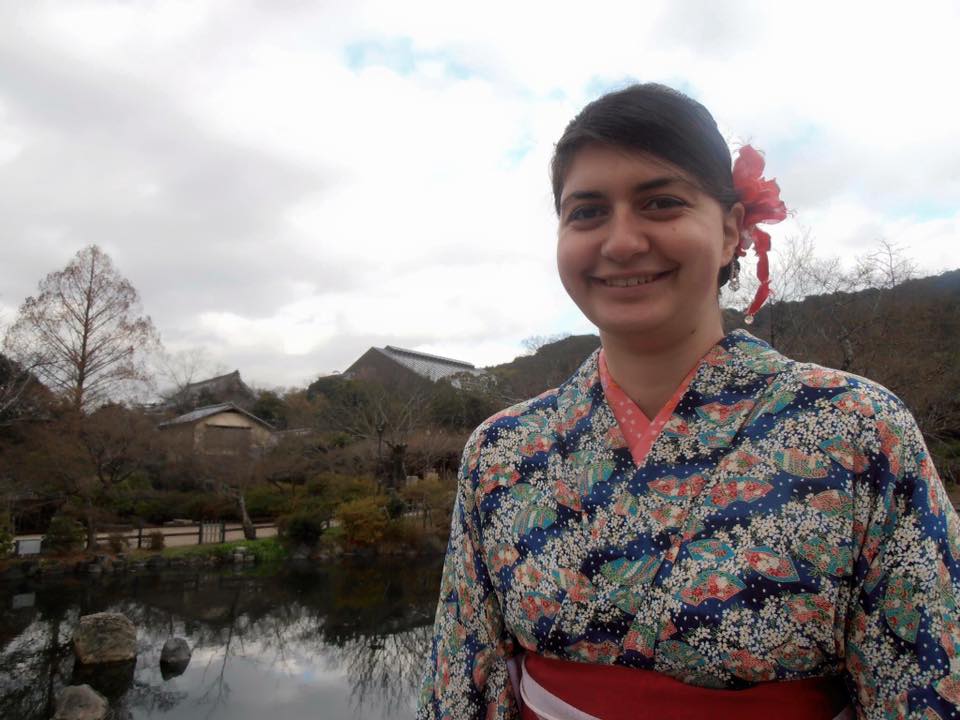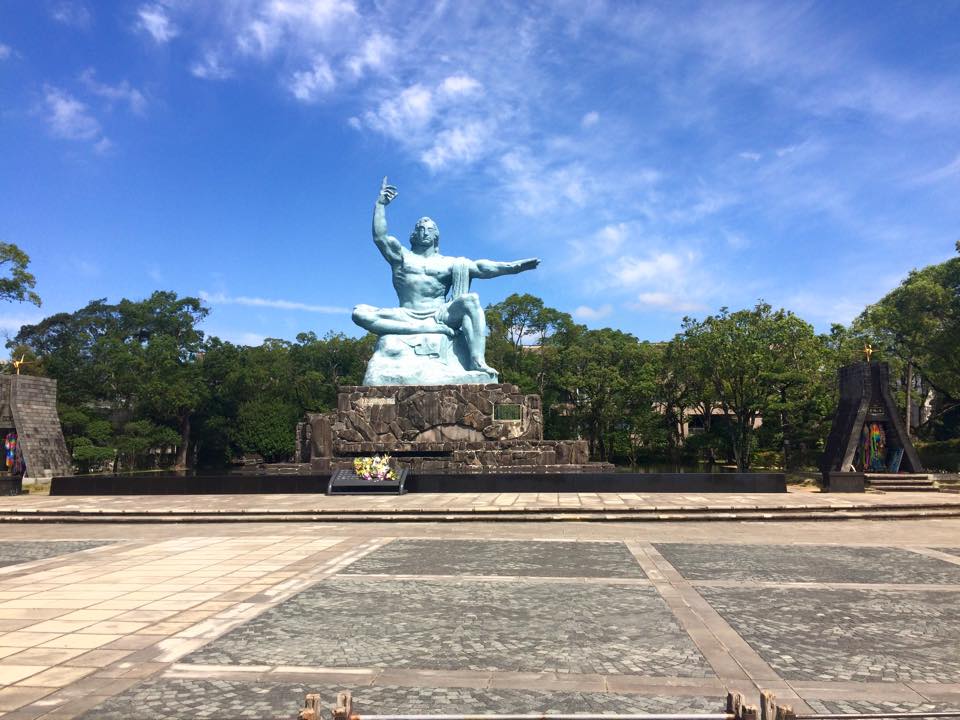People experience culture every day — at home, at work, and at school. There are differences in all these places, and they influence how people perceive each other.
Study abroad programs can help students not only grow their global perspective but explore their identities among different cultures and traditions around the world.
It can be quite difficult to transition into a new cultural space and become acclimated to new cultures.
Culture shock, according to the Council of International Educational Exchange, is a sense of confusion and uncertainty from someone subjected to an unfamiliar way of life, culture, or set of attitudes.
Melinda Messineo, a sociology professor at Ball State University, has organized and led multiple study abroad experiences in Costa Rica, China, and India.
Messineo says culture shock tends to happen when people are out of their comfort zone, like when they travel to new places or different countries.
It can be hard to conform to traditions and cultural customs that you don’t understand. Barriers in language, transportation, currency, as well as food can be stressors for culture shock while trying to fit into a culture they have never been in before.
“It’s not unusual for people describing frustration. They often talk about being exhausted, and one of the reasons why they feel exhausted is because things that used to be just taken for granted, you wouldn’t even think about it, you have to think about it,” Messineo says. “You thought you knew how to greet people, you thought you knew how to order food.”
She says study abroad experiences can help you shape your own global view of culture.
“You know how they say, ‘You are what you eat?’ Well, in sociology, we say, ‘You are who you meet,’” Messineo says.
When adapting and transitioning into a new cultural environment, people who are traveling abroad should be aware of microaggressions.
A microaggression, according to the Cleveland Clinic, is a subtle verbal or nonverbal insult that impacts an individual who might be from a marginalized community. They can come in the form of organizational processes designed to keep specific groups from advancing.
It can be either intentional or unintentional, Messineo pointed out. She added that this happens a lot, and many people don’t realize it because they often make assumptions about how situations are supposed to unfold.
Understanding how to avoid these negative biases helps students understand the little nuances that are embedded in cultures all around the world.
Rachelle Spencer, a graduate student and study abroad peer adviser in the Rinker Center at Ball State, says studying abroad was a great opportunity for her to get out of her comfort zone, explore the world, and decide if she was in the right spot academically.
Culture shock snuck up on Rachelle while she was studying in Nagasaki, Japan, from September to December 2015.

“I had heard about it in my pre-departure meetings, but there just came a moment where I was very frustrated,” Rachelle says. “It was a great immersive experience, but my host mother didn’t speak any English, and everything on the radio was in Japanese. It was just like it hit a point where it was overwhelming.”
An integral component of the study abroad experience is the host family. This is typically a family deeply rooted in the country’s culture and traditions, offering students not just a secure place to reside during their travels but also aiming to smoothen the transition into a new environment.
“When you study abroad, if you want to live with a host family, they’ll match you with someone, and that is where you sleep,” Rachelle says. “They make meals for you; it’s basically like your family in another country.”
Rachelle’s host was a grandmother, giving her occasional interactions with her host’s children and grandchildren. She says her experience with her host mother was a “10 out of 10.”
Rachelle’s fascination with Japanese culture began when she was a junior in high school. She took Japanese classes in college and wanted to study abroad, but she was unsure if it was doable.
A visit with the study abroad office was a turning point for Rachelle as she met with a study abroad adviser who helped her realize her dream of studying in Japan was within reach. The adviser told her about financial aid and scholarships that could help her.
“I’m very thankful that I went to the study abroad office and had that ‘why not’ mentality, and I was able to talk through my concerns with an adviser and really find my path forward,” Rachelle says.
On her trip, she traveled for the first time to another country. It was empowering for her to do so in a place where she didn’t speak the language, and it prompted her to reflect on her identity as an American.

Some students have to cope with culture shock when they return home from studying abroad and reacclimate to their daily lives after immersing themselves in different customs and traditions. This reverse culture shock can be just as jarring.
That was the case for Zoe Pointer, a junior majoring in interpersonal communication studies and a study abroad peer ambassador at the Rinker Center for Global Affairs. Her journey illustrates the profound and multifaceted nature of cultural immersion and the return to one’s roots.
After she returned home from a five-week study abroad program exploring Ecuador’s culture, she found herself overstimulated at the airport. The contrast between her experiences abroad and the familiar yet now strangely alien environment of home underscores the transformative power of cultural exchange.
Zoe was so used to Ecuadorian culture and the language that when she went to pick up her luggage from baggage claim, it took her a second to navigate her way because she wasn’t accustomed to being surrounded by the English language.
In addition to the cultural experiences and getting to interact with Ecuador’s culture and people every day, one of her most memorable moments in Ecuador was of a protest going on at the time.
According to Reuters, in June 2022, there were a series of protests against the economic policies of former President Guillermo Lasso by Indigenous protesters.
There was a cultural movement occurring before her eyes.
These experiences enriched her understanding of global social dynamics, offering insights into the complexities of cultural identity and activism.
“It sucks that the protests had to happen, but being there and experiencing the culture in that way was very interesting,” Zoe says.
According to the University of Southern California, the way to mitigate culture shock is to spend time before the trip researching the host culture in order to prevent any misunderstandings and to create a better assimilation and cultural immersion.
“I think the most important thing to keep in mind is that wherever you are, no matter what program you are in, everybody believes what they believe and act how they act for a reason,” Zoe says.
One of the vast cultural differences that Zoe pulled away from her time in Ecuador compared to the United States is the sense of comfort and peace. She felt safe enough to walk the streets at night. She did not feel safe doing that when she was growing up in Indianapolis.
One of the challenges study abroad peer ambassadors and the Office of Global Affairs face when planning study abroad experiences is making it affordable and obtainable for students. Zoe says she does everything in her power to help find affordable programs for students.
Whether a student wants to travel the world, experience other cultures, or get a new change of scenery, studying abroad can profoundly change their world perspectives.
“One of my favorite quotes I heard was from one of my friends who went bungee jumping. Her tour guide said, ‘Don’t think. Just jump,’” Zoe says.
Sources: Council of International Exchange, Cleveland Clinic, UK Council for International Student Affairs, University of Southern California, Institute of International Education




